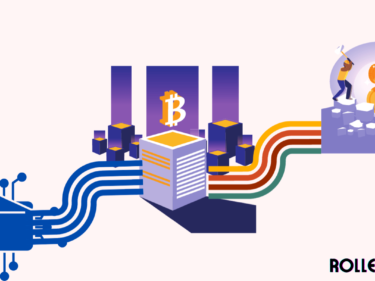What is Fintech and where is cash going?

What is Fintech and where is cash going?
Does your commercial bank require a visit to its local branch for a simple financial operation? Then it might be time for you to change it. The financial system has become a field that is naturally adapting to modern-day developments. The technological revolution in the past several decades has pushed some fields into the digital world and finance is not an exception.
Fintech is still not about Finland and it does not stand for fine technology either. Here is the brief Wikipedia definition: “Financial technology, often shortened to fintech, is the technology and innovation that aims to compete with traditional financial methods in the delivery of financial services”.
Yes, fintech is a combination of words financial and technology. In fact, the industry itself is not new. From the introduction of credit cards in the 1950s, the financial sector has been gradually developing around the world. However, the introduction of smart technology, phones that can run a variety of software, and increasing demand for digital services, the last decade became a breaking point for fintech.
What is modern-day fintech?
The modern world runs on financial services. According to experts from 55brokers, It is crucial to adapt the industry to new trends, demands, and challenges. In fact, it has always been this way. However, a soaring number of internet users and the widespread accessibility to technologies such as smartphones have significantly boosted the pace of change.
Millennials and Generation Z-ers take care of their finances more than their parents’ generation do. Along with that, they represent the generation of biggest spenders we have ever seen. Young people are entirely dependent on technology and require relevant solutions, especially when it comes to financial products and services. As a result, today’s fintech covers many more areas than it used to, including:
- Banking services
- Money lending
- Insurance
- Trading and investments
- Fast payments
- Automate travel arrangements and booking
The entire blockchain and cryptocurrency sphere is often considered a part of the modern fintech industry as well. Some even claim that it represents the most unregulated branch, talking about potential risks of the market bubble.
However, other parts such as financial services have adopted fintech on a high level and included in their promotions. A clear example of this would be the forex trading bonus and various other benefits.
However, the biggest part of fintech is naturally, the banking sector.
Fintech banking – a branch on your phone
Banking is yet the largest part of fintech. Moreover, commercial banks with their products and services are an important and inseparable part of the global economy. The growing digitalization has led them to introduce online services. Nowadays, every major bank offers mobile options for its customers.
Some young commercial banks or subsidiaries of bigger ones are now classified as neobanks. This certainly is a new term and stands for a bank that does not have a physical office. Every service they offer, including opening the bank account is conducted online.
The spread of mobile banking is particularly beneficial for underdeveloped and developing countries as well as large industries. An example of the industry’s adaptation would be the Forex deposit measurements, especially the FXTM minimum deposit and its features. Thanks to fintech, the number of options is overflowing. In terms of global adaptation, in some nations where the commercial bank services are not accessible, mobile options help people have a money account without having to physically approach an office.
This tendency and the beneficial side of fintech are well-visible in India. The country of over 1.3 billion people has a high fintech adoption rate standing at 59%. This is way above the global average of only 33%. The correlation between the accessibility of banking services and fintech is even more visible when taking into account the character of top fintech initiatives in India. The list is topped by online payment services such as Paytm.
Another great example is Kenya, where the launch of M-Pesa, a mobile banking services platform made a major shift in the country’s financial sector. More people than before having access to banking services in Kenya at an estimated 83% in 2019 compared to only 75% in 2016.
Insurance on your phone
Major insurance companies are already pairing up with fintech initiatives in an attempt to digitize their services. Surprisingly, the insurance industry is adapting at a high pace. Some insurance agencies forecast that connected cars, connected homes, and e-health services will become a widespread reality in the nearest future. Costs are also expected to drop, amid the increased efficiency and mobility of fintech technology.
Breaking the barriers: mobile lending
Having a credit card or taking a loan from a commercial bank is very common. Households and individuals benefit from bigger sums of money taken from financial institutions that they would otherwise not be able to accumulate. Although money-lending has been around for a very long time, the barriers and bureaucracy are also still in place.
Fintech is revolutionizing this area as well by increasing access to such services. Now customers can ask for a loan by simply filling in a brief form on their portable devices. Moreover, the time needed to receive the decision on request as well as the number of formal steps is decreasing. Mobile banking is also contributing to the development of risk assessment, which is particularly important to loan providing entities.
Is the cashless future close?
Although fintech is leading the change faster than ever before, risks are still present. The Increasing use of technology for financial services comes with a bigger risk of cyberattacks. Moreover, national legislations struggle to keep up with the fast pace, making fintech quite unregulated. Sooner or later, fintech will probably be the primary, if not the only means of financial services. However, until that day, cash is here to stay.



